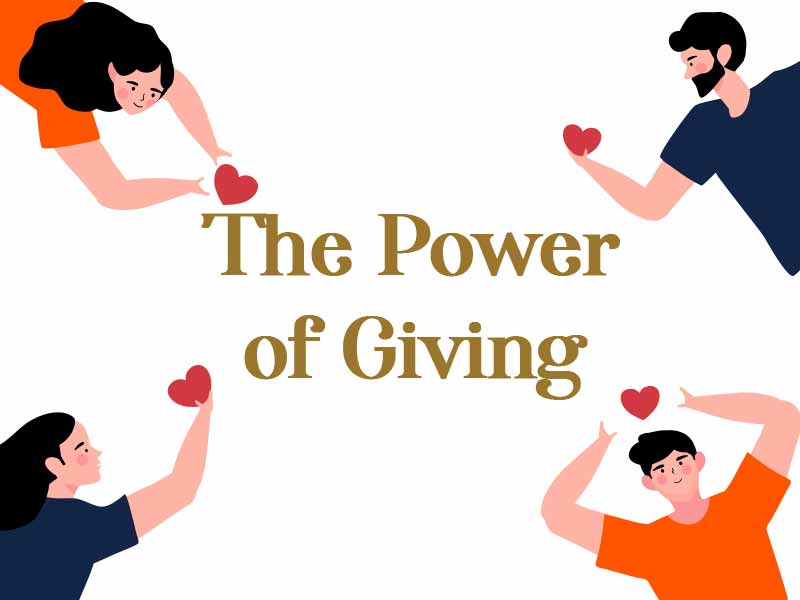You've probably heard the saying, "the more you give, the more you get." What if we told you there is actual science to back this concept?

- Allan Luks, a prominent expert on volunteerism, introduced the term "Helper's High." Based on 20 years of research involving over 3,000 volunteers, he found that those who regularly helped others were ten times more likely to enjoy good health. When we assist those in need, our bodies release endorphins, acting as natural painkillers and providing a feeling of “high”.
- In 2008, Professor Elizabeth Dunn of the University of British Columbia conducted a study revealing that spending money on others contributes more to happiness than spending it on oneself.
- In 2007, economist Bill Harbaugh and psychologist Ulrich Mayr, both from the University of Oregon, conducted a study using fMRI to measure brain responses to voluntary and mandatory donations. The results demonstrated that when individuals chose to donate voluntarily, their brains released the "happy hormone" dopamine, leading to that familiar "warm glow."
- An article in the May 1988 issue of American Health magazine reported a study from Michigan. It found that men who didn't volunteer had a risk of mortality two and a half times higher than those who volunteered at least once a week.
The wise, beautiful words of an ancient Chinese proverb goes: “If you want happiness for an hour, take a nap. If you want happiness for a day, go fishing. If you want happiness for a year, inherit a fortune. If you want happiness for a lifetime, help somebody.”
Giving, in the form of volunteering:

The next time you're dealing with a breakup or feeling overwhelmed at work, take a break from your routine. Shift your focus away from your problems and spend time volunteering at an elderly home or a pet rescue center. You'll be amazed at how much better you'll feel.






501 comments
eoVhgpEZMnF
BORoPQrsUjNDAni
uTxHSDVQ
bIZxaeWBlmDV
EpdeZFyjavTz